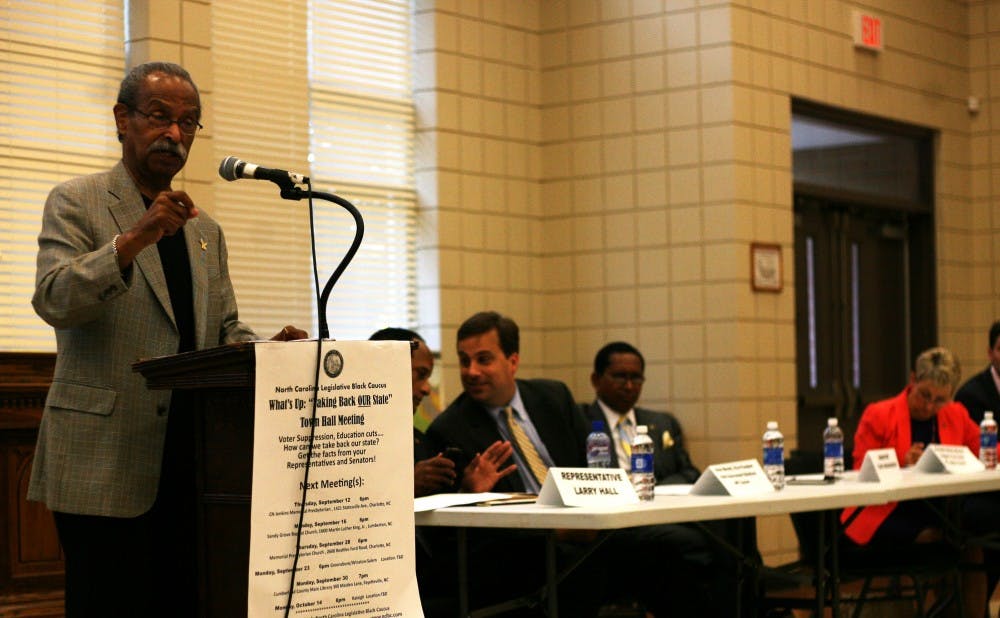The Black Caucus of North Carolina held a town hall meeting Wednesday outlining issues facing the state, including health care and voting rights.
Held in Durham’s First Calvary Baptist Church, the event featured several state representatives and senators—as well as leaders of the Black Caucus, officials of North Carolina Central University and the University of North Carolina at Chapel Hill and members of North Carolina Justice, an advocacy organization. These leaders addressed controversial moves that North Carolina has made since the Republican takeover of the General Assembly in 2012.
The event began with Democratic Sen. Floyd McKissick’s denunciation of the recently passed Voter Information and Verification Act—referred to as the Voter Intimidation and Vilification Act by Rep. Mickey Michaux, D-N.C.. The bill made waves across North Carolina college campuses due to a clause denying the use of student IDs for voter registration.
“It’s more than just voter IDs. It’s about voter suppression,” McKissick said. “The voters more likely to vote Democratic are suppressed.”
In addition to the student ID clause, the bill also eliminates same-day voter registration and reduces the early voting period. It also tightens the restrictions on what types of identification will be allowed to register to vote. Approximately 300,000 North Carolina residents without a government-issued ID will not be allowed to register under VIVA.
“Controlling 300,000 votes with this legislation can have a profound and devastating effect,” McKissick said.
Rep. Valerie Foushee, D-N.C., addressed women’s issues next, focusing on the state abortion bill.
“Sooner or later, it will close every center in North Carolina that provides abortion services,” Foushee said. “But these clinics also provide cancer screenings, and the elimination of these services also denies affordable access to healthcare for women in North Carolina.”
Rep. Deb McManus, D-N.C., spoke about the impact of the legislature’s decision not to pass the Medicaid Expansion Act—the Act, voted down by Republicans, would have provided care for about 600,000 people in North Carolina. Care will still be provided for pregnant women, children and the disabled.
Adam Linker, policy analyst at the North Carolina Justice Center, continued the discussion on health care, noting that Durham was the only city in North Carolina to pass a resolution to expand Medicaid.
North Carolina received $74 million from the federal government to enroll more moderate-income people in the North Carolina health insurance exchange.
“But the state legislature rejected the money and sent it back to the federal government,” Linker said.
Rep. Garland Pierce, D-N.C., chairman of the North Carolina Legislative Black Caucus, closed the event with an ambitious message to his party and supporters.
“People ask me, ‘Where do we go from here?’ And the way I see it, in 2016, we have to take back all three houses—well, two houses and one mansion,” said Pierce, referring to the House, the Senate and the Governor’s Mansion.
Get The Chronicle straight to your inbox
Signup for our weekly newsletter. Cancel at any time.

